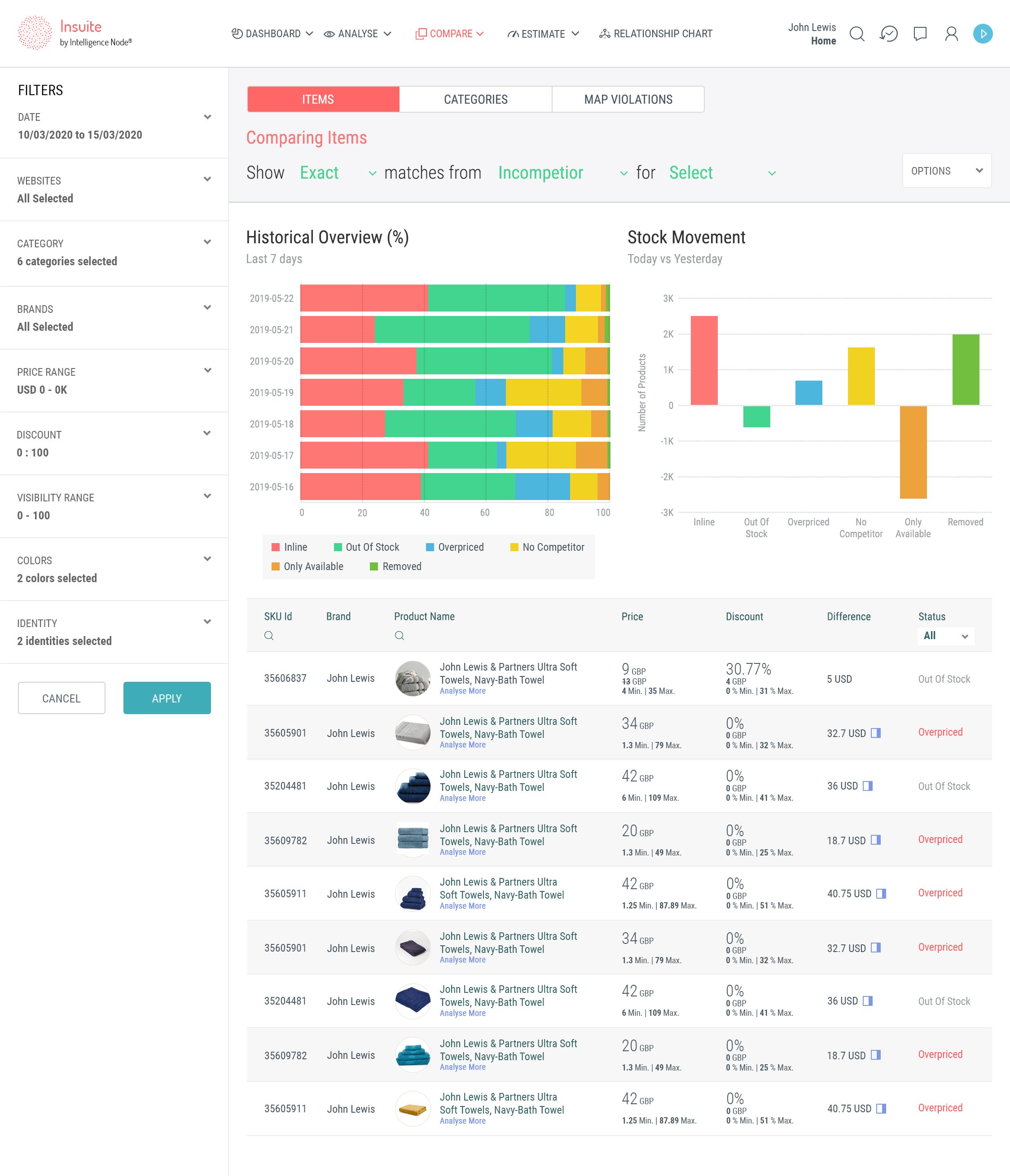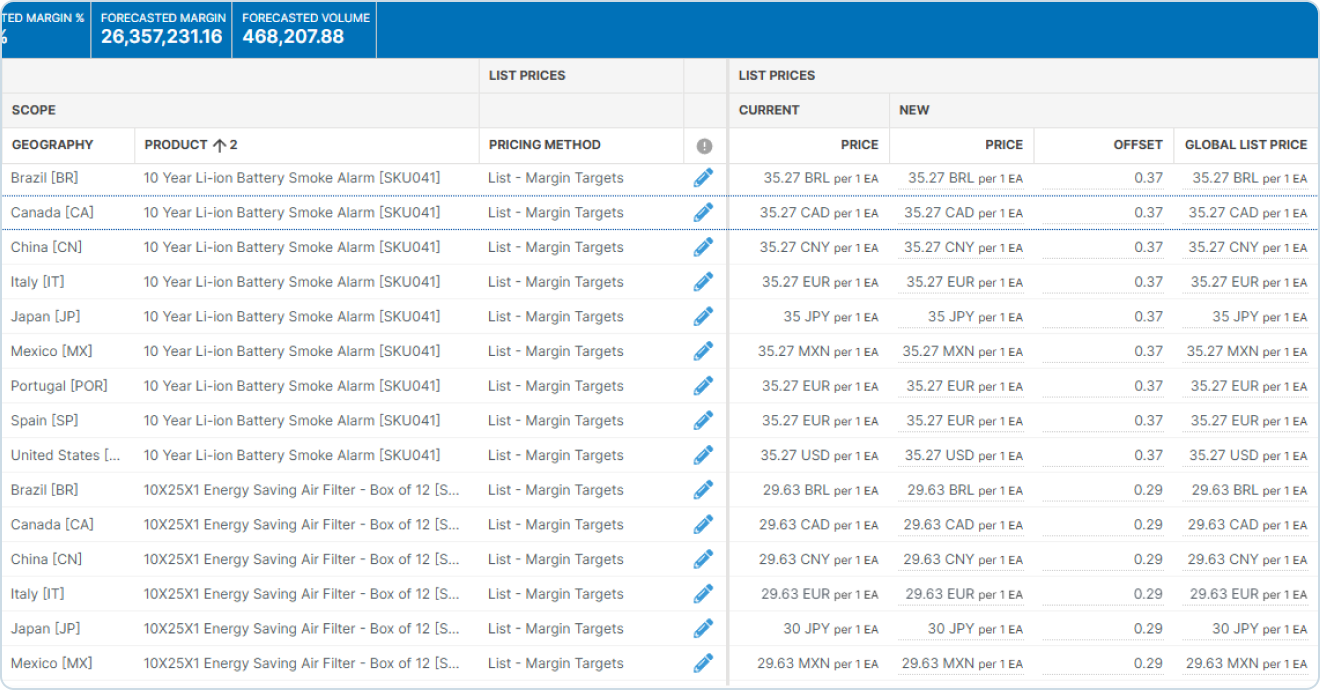Alternatives to BlackCurve
1. Intelligems
+Pros
- Deep Shopify-native integration enabling functionality that generic testing tools cannot match within Shopify's ecosystem.
- Profit-centric analytics differentiate it from conversion-focused alternatives by emphasizing margin optimization over pure revenue growth.
- Rapid deployment capabilities with 1-6 week implementation timelines enable faster time-to-value compared to enterprise alternatives requiring months.
-Cons
- Platform dependency and testing complexity requirements.
- Subscription testing complexity involving duplicate products increases implementation challenges.
- Statistical significance interpretation requires analytical expertise or support guidance, potentially limiting accessibility for merchants lacking internal resources.
One highlighted feature and why it's amazing
Enables comprehensive experimentation across pricing, shipping, content, and promotional strategies through unified dashboard management.

Another highlighted feature of why it’s amazing
Provides deep platform connectivity through real-time API adjustments and DOM manipulation for seamless user experience.
2. Intelligence Node
+Pros
- Real-time competitive monitoring with 10-second data refresh rates
- 99% product matching accuracy through attribute-based similarity engines
- Integration with OpenAI for predictive analytics and AI-generated content
-Cons
- 3-6 month enterprise deployment timeline may challenge organizations requiring rapid deployment
- Implementation complexity requires multiple IT specialists and dedicated pricing teams
One highlighted feature and why it's amazing
The platform's machine learning algorithms process competitive pricing data with 10-second refresh rates, enabling instant market response during promotional periods.

Another highlighted feature of why it’s amazing
Intelligence Node provides comprehensive competitive tracking across 100+ currencies with zip-code-level granularity, enabling international retailers to monitor pricing strategies in specific geographic markets.
3. PROS Pricing
+Pros
- The platform's ability to process over 400 million daily price calculations with 90%+ prediction accuracy.
- AI Transparency Leadership: Unlike 'black box' AI solutions, PROS Pricing provides visual dashboards displaying model performance metrics, prediction confidence levels, and decision logic.
- Enterprise Integration Excellence: Comprehensive ERP integration capabilities with major platforms like SAP S/4HANA enable seamless data flow between pricing optimization and core business systems.
-Cons
- The platform requires 12-16 week deployment timelines with 4-10 weeks for data migration.
- Implementation costs of $50K-$300K plus annual maintenance of 15-20% of license fees.
- Sales team adoption resistance occurs in B2B implementations where commission structures aren't realigned with new pricing workflows.
One highlighted feature and why it's amazing
The platform's neural networks process over 400 million daily price calculations with 90%+ prediction accuracy, enabling continuous price optimization based on market conditions, competitor actions, and demand patterns.

Another highlighted feature of why it’s amazing
PROS Pricing provides seamless integration with Shopify and Magento APIs for dynamic repricing, enabling synchronized pricing across multiple channels.
Other Alternatives
Pricefx
Pricestack
Vendavo
Wiser
Zilliant
How We Researched This Guide
About This Guide: This comprehensive analysis is based on extensive competitive intelligence and real-world implementation data from leading AI vendors. StayModern updates this guide quarterly to reflect market developments and vendor performance changes.
236+ verified sources per analysis including official documentation, customer reviews, analyst reports, and industry publications.
- • Vendor documentation & whitepapers
- • Customer testimonials & case studies
- • Third-party analyst assessments
- • Industry benchmarking reports
Standardized assessment framework across 8 key dimensions for objective comparison.
- • Technology capabilities & architecture
- • Market position & customer evidence
- • Implementation experience & support
- • Pricing value & competitive position
Research is refreshed every 90 days to capture market changes and new vendor capabilities.
- • New product releases & features
- • Market positioning changes
- • Customer feedback integration
- • Competitive landscape shifts
Every claim is source-linked with direct citations to original materials for verification.
- • Clickable citation links
- • Original source attribution
- • Date stamps for currency
- • Quality score validation
Analysis follows systematic research protocols with consistent evaluation frameworks.
- • Standardized assessment criteria
- • Multi-source verification process
- • Consistent evaluation methodology
- • Quality assurance protocols
Buyer-focused analysis with transparent methodology and factual accuracy commitment.
- • Objective comparative analysis
- • Transparent research methodology
- • Factual accuracy commitment
- • Continuous quality improvement
Quality Commitment: If you find any inaccuracies in our analysis on this page, please contact us at research@staymodern.ai. We're committed to maintaining the highest standards of research integrity and will investigate and correct any issues promptly.